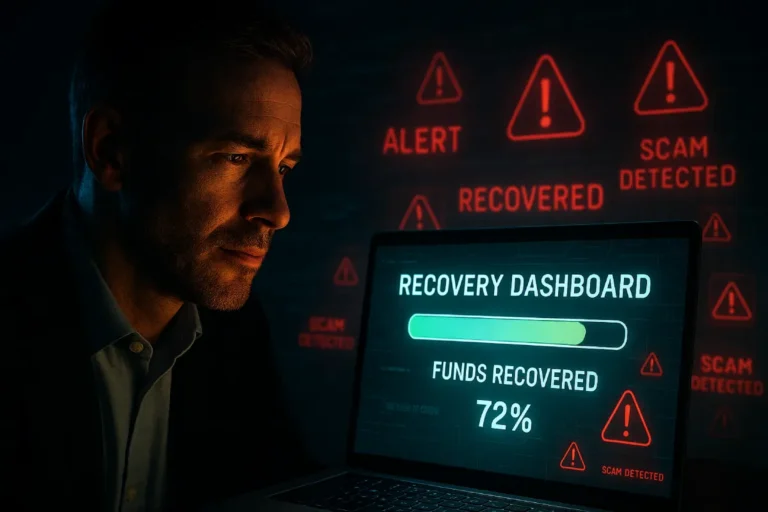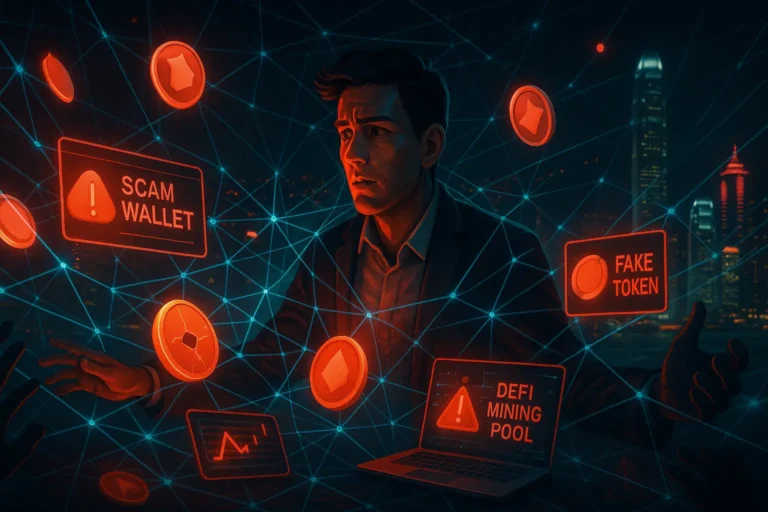Wherever there’s money, there are people trying to steal it. And wherever there are people who’ve had money stolen from them, there are other people trying to steal from them again. This is basically the iron law of finance.
So it goes with cryptocurrency. As more people lose crypto to scams, hacks, and their own mistakes, a whole industry has sprouted up to help them get their money back. Some of these services are legitimate. Many are not. The cruel irony is that victims of crypto scams often become victims of crypto recovery scams, which is like getting robbed on your way to file a police report about being robbed. I’m going to walk through how these recovery scams work and what you can do to avoid them if you’re looking for actual help, not a second helping of fraud.
What are Crypto Recovery Scams?
- People who lost private keys or seed phrases
- Users who sent funds to the wrong address
- Investors caught in scams or hacks
- Families seeking help on behalf of loved ones
Common Crypto Recovery Scam Tactics
- Advance Fees: Demands for large upfront payments without explaining the process and expected outcome clearly.
- Impersonation: Pretending to be or working with regulators, police, exchanges, or known firms.
- Social Engineering: Using personal details to build trust.
- Seed Phrase Requests: Asking for private keys, seed phrases, or remote access to devices.
- Fake Escrow Services: Claiming to hold funds “in escrow” before release.
- Technical Jargon: Presenting complex tools or fake dashboards to confuse victims.
- Payment Escalation: Repeated demands for additional fees.
- Baiting on Forums: Posting fake “success stories” to lure victims.
- High Pressure: Urging secrecy or immediate payment to avoid “missing the chance.”
- Unprofessional Communication: Poor grammar, fake domains, or unverifiable emails.
- Fabricated Proof: Fake testimonials or non-existent case studies.
- Lack of Registration: No company filings, no physical address, no real management, and no independent references.
How to Identify Legitimate Crypto Recovery Services
- Verified company registration and physical office presence
- Independent reviews and credible referrals
- Transparent pricing and written contracts
- Named, verifiable staff with public credentials
- No requests for private keys or unrestricted remote access
- Use of traceable, reputable payment methods
- Written agreements including service levels and dispute resolution
- Compliance with law and willingness to involve lawyers or law enforcement
How to Protect Yourself from Crypto Recovery Scams
- Never share private keys, seed phrases, or wallet passwords.
- Treat repeated payment demands with caution.
- Verify identities using official support channels or government numbers.
- Research companies thoroughly using registry filings and independent reviews.
- Do not grant remote desktop access or install unknown software.
- Use hardware wallets, update devices, and enable two-factor authentication.
- Limit how much personal information you share online.
- Keep full records of all communications and payments for evidence.
What to Do If You’ve Been Scammed
- Stop all communication immediately.
- If you gave away a private key or seed phrase, move remaining funds to a new wallet if possible.
- Contact your exchange or wallet provider with full transaction details.
- If fiat payments were made, notify your bank or card provider urgently.
- File a report with Hong Kong Police and provide documentation.
- Report accounts, ads, and domains used by the scammers to the relevant platforms.
- Preserve evidence — messages, wallet addresses, transaction IDs, screenshots, and receipts.
- Consider consulting a lawyer experienced in crypto disputes, especially for larger sums.
- Set expectations: recovery is often difficult. Do not send more money to firms that demand repeated payments.
Targeted by a Crypto Recovery Scam? Contact Us for Real Help
- Verified investigative expertise in crypto tracing and recovery
- Transparent contracts with traceable payment options
- Clear communication about realistic outcomes
- Collaboration with exchanges, regulators, and law enforcement
- Evidence packages that support legal action and asset freezes



